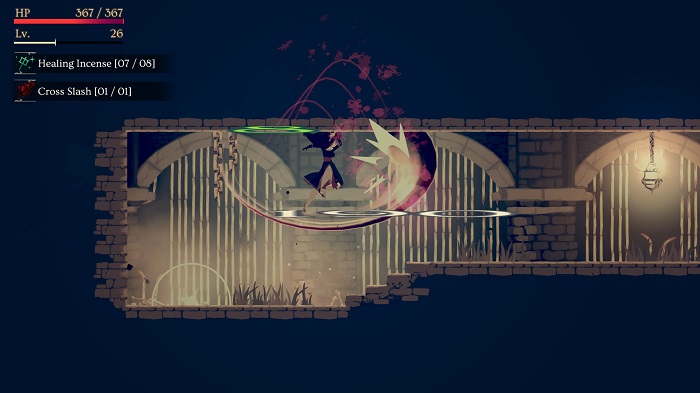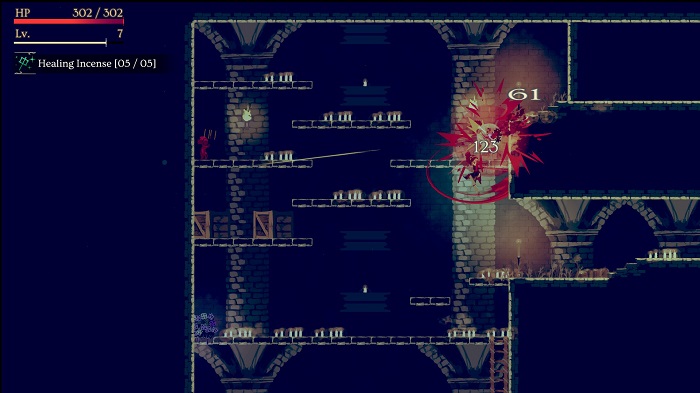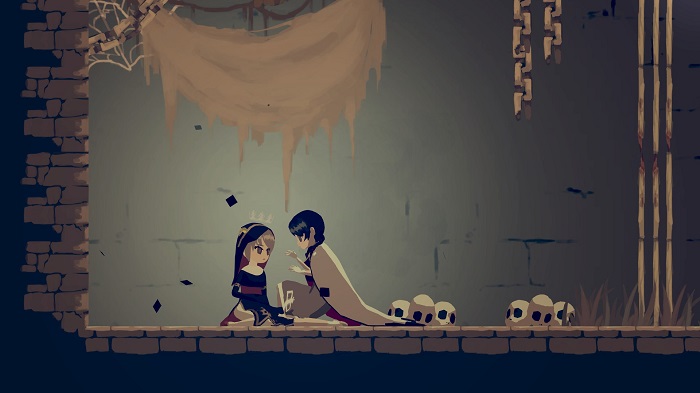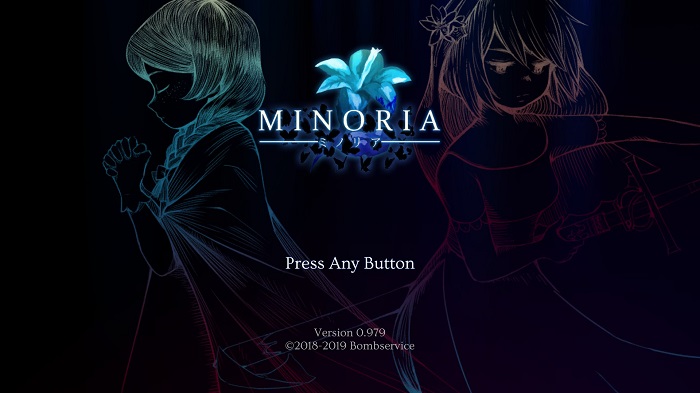Subjective:
Developer Bombservice and publisher DANGEN Entertainment present Minoria for review. Minoria is a spiritual sequel to Bombservice’s 2016 game Momodora: Reverie Under the Moonlight. Minoria is a 2D action/exploration platformer where the path forward hides behind monsters, labyrinthine forests and castles, and a church whose motives aren’t pure as religious operatives hunt down dangerous witches.
Objective:
Minoria‘s combat is weighty and punishing. There is no difficulty setting, so the player must learn how to maneuver around then counterattack the many different enemies standing in their way. In the event of player death, which is likely to happen often, there is little fanfare and restarting is easy. Little delays player progress from one space to the next aside from their own skills in exploration and combat. Minoria‘s clean art style keeps environmental paths separate from immediate threats while maintaining an emotional minimalism that clearly communicates the many characters’ state of mind. The soundtrack is often mournful without becoming too depressing, and the sparse sounds echo in the game play with each action.

Assessment:
Minoria faces stiff competition in the field of recent 2D action/exploration platformers. That includes Bloodstained: Ritual of the Night from earlier this year, and previous strong entries in Hollow Knight and Ori and the Blind Forest. What Minoria lacks in the flashy aesthetics of those games, even the shadow-draped stillness of Hollow Knight, is precision and density.
I missed the chunkier pixels of Momodora for only a moment. Minoria has a smoother look and the slicker curves of the characters collide with one another in sudden, sometimes astonishing, brutality. A good example comes from figures of light with charming voices that open their mouths to reveal rows of sharpened teeth. The initial threats are clear but there’s almost a more menacing surprise lurking underneath. The action breaks at a great pace, allowing time for cut scenes to efficiently set up emotional stakes in barely a minute, and the lurking depths of the art style are key to Minoria‘s storytelling strength.
As great as Minoria looks, it feels magnificent. This isn’t a pixel-perfect extension of player will but a character I had to feel out and learn how to control. Battles are heavy affairs with generous dodge windows but momentum that leaves you exposed. Most fights can end in game over if you take two or – at most – three hits so learning how momentum carries from one set of enemies to the next, all while leaving room to counterattack, is a crucial and rewarding skill to pick up as the player moves along. Minoria‘s variation on the double-jump, a 2D platforming standard, is a great twist as it is both movement and attack that cleaves a path forward while arcing the player unusually while still leaving moments of vulnerability in the movement.

I was also impressed at the depths of Minoria‘s story and plot. The church isn’t a collection of stereotypical evil types but people who understand power will be wielded by someone and use religion as their way of flexing muscle. Other sides in the conflict, as they reveal themselves, also show an understanding of the power of symbols as they differentiate themselves from the church with their own violence and space claiming tactics. As Minoria winded down, I adored how Bombservice presented the struggle as a reminder that living ethically needs to be its own justification and doesn’t guarantee a happy ending. But it doesn’t mean darkness either.
Minoria‘s careful tone seems to call for a similarly subdued soundtrack but the music is almost too measured. There’s been a tendency lately for melancholic piano to guide exploration in these platformers and Minoria‘s is so subdued that it might as well not exist at times. The boss battles and brief moments of musical excitement fare better, but those are regrettably (if understandably) spaced further apart. There’s also some issues with the sensitivity of super moves the character can perform. They have quick charge windows and, while powerful, often result in loss of control that led to the few aggravating deaths I had playing Minoria. A stronger visual indicator, ability to cancel out, or some other sign that the move is charging or charged would allow for the kind of thoughtful movement in combat that punctuates the rest of Minoria.
Those are two small, but nagging, complaints about an otherwise excellent experience. I loaded up Minoria thinking I was going to make a bit of progress for notes and didn’t stop until a shade over six hours later when the credits rolled. The movement and combat is so satisfying that the option of a slightly more punishing New Game+ sounded immediately tantalizing. Minoria is a distinguished game in a genre that’s going through a recent resurgence and, even if you’re not a fan of 2D action/exploration platformers, should give it a look.

The Review
Minoria
Minoria builds on the strength of the Momodora series to deliver an excellent entry in 2D action/exploration platformers. The mature story, weighty combat and movement, and strong aesthetics show Bombservice is not interested in repackaging a similar experience. There are some minor quibbles with the music and controls, but they detract little from the artistry in action.
PROS
- Subtley menacing aesthetic that reveals itself in flashes of brutality.
- Weighty and deliberate mechanics anchor the movement and combat to deliver an experience that's satisfying to learn as its rarely predictable.
- Mature understanding of power in the story that doesn't revel in darkness but doesn't ignore the consequences of power when its exercised.
CONS
- Music is sometimes too familiar in its piano arrangements to the point of adding boredom to the otherwise good traveling.
- The precise weight of the controls is somewhat undone by super moves that charge spontaneously with little indication of their release and result in some frustrating deaths.



